Hyundai Kona vs Renault Mégane - Differences and prices compared
Costs and Efficiency:
Price and efficiency are key factors when choosing a car – and this is often where the real differences emerge.
Hyundai Kona has a decisively advantage in terms of price – it starts at 23100 £, while the Renault Mégane costs 35100 £. That’s a price difference of around 12000 £.
In terms of energy consumption, the advantage goes to the Hyundai Kona: with 14.60 kWh per 100 km, it’s minimal more efficient than the Renault Mégane with 15.40 kWh. That’s a difference of about 0.80 kWh.
As for range, the Hyundai Kona performs somewhat better – achieving up to 514 km, about 62 km more than the Renault Mégane.
Engine and Performance:
Under the bonnet, it becomes clear which model is tuned for sportiness and which one takes the lead when you hit the accelerator.
When it comes to engine power, the has a edge – offering compared to . That’s roughly more horsepower.
In acceleration from 0 to 100 km/h, the Renault Mégane is barely noticeable quicker – completing the sprint in 7.40 s, while the Hyundai Kona takes 7.80 s. That’s about 0.40 s faster.
In terms of top speed, the Hyundai Kona performs noticeable better – reaching 210 km/h, while the Renault Mégane tops out at 160 km/h. The difference is around 50 km/h.
There’s also a difference in torque: Renault Mégane pulls a bit stronger with 300 Nm compared to 265 Nm. That’s about 35 Nm difference.
Space and Everyday Use:
Beyond pure performance, interior space and usability matter most in daily life. This is where you see which car is more practical and versatile.
Seats: offers more seating capacity – vs .
In curb weight, Hyundai Kona is clearly perceptible lighter – 1370 kg compared to 1719 kg. The difference is around 349 kg.
In terms of boot space, the Hyundai Kona offers somewhat more room – 466 L compared to 389 L. That’s a difference of about 77 L.
In maximum load capacity, the Renault Mégane performs hardly perceptible better – up to 1332 L, which is about 32 L more than the Hyundai Kona.
When it comes to payload, Hyundai Kona barely noticeable takes the win – 490 kg compared to 446 kg. That’s a difference of about 44 kg.
Who wins the race?
The Hyundai Kona proves to be is largely superior and therefore becomes our DriveDuel Champion!
Hyundai Kona is the better all-rounder in this comparison.
 @ Hyundai Motor Company
@ Hyundai Motor Company
Hyundai Kona
Costs and Consumption
View detailed analysis
Engine and Performance
View detailed analysis
Dimensions and Body
View detailed analysis
Hyundai Kona
The Hyundai Kona wears its personality on the outside with bold styling and sprightly handling that turns city driving into something a little more fun than a commute. It blends practical space, modern tech and sensible running costs into a compact, stylish package — a smart pick if you want flair without paying luxury prices.
details @ Hyundai Motor Company
@ Hyundai Motor Company
 @ Hyundai Motor Company
@ Hyundai Motor Company
 @ Hyundai Motor Company
@ Hyundai Motor Company
 @ Hyundai Motor Company
@ Hyundai Motor Company
Renault Mégane
The Renault Mégane blends Gallic flair with practical everyday charm, showing that sensible transport can still have personality and poise. It’s a smart pick for buyers who want a comfortable, stylish hatchback that feels a little more special than the usual commute companion.
details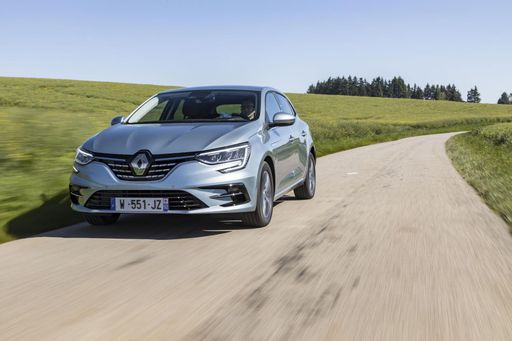 @ Renault Group Media
@ Renault Group Media
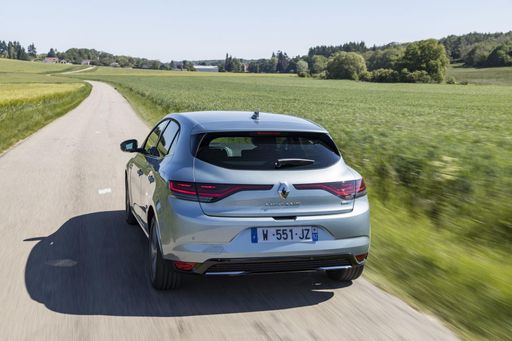 @ Renault Group Media
@ Renault Group Media
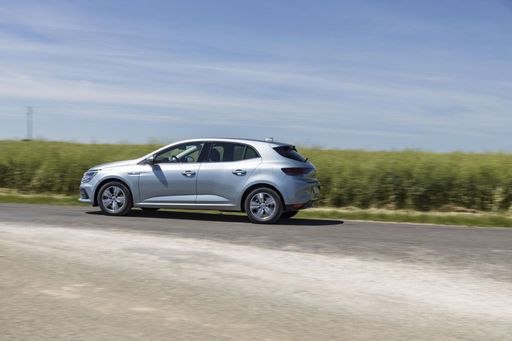 @ Renault Group Media
@ Renault Group Media
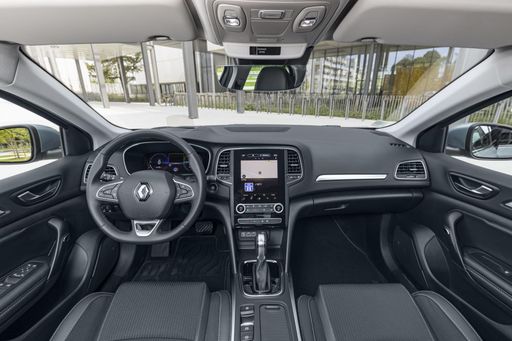 @ Renault Group Media
@ Renault Group Media
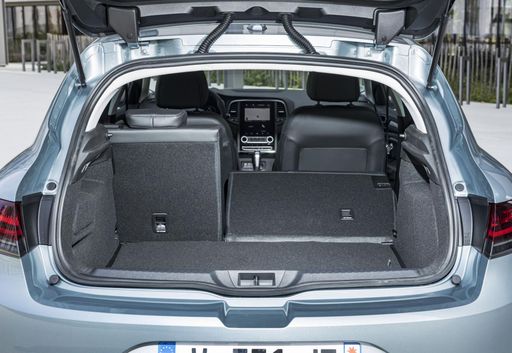 @ Renault Group Media
@ Renault Group Media
 @ Hyundai Motor Company
@ Hyundai Motor Company
|
 @ Renault Group Media
@ Renault Group Media
|
|
|
|
Costs and Consumption |
|
|---|---|
|
Price
23100 - 41600 £
|
Price
35100 - 38500 £
|
|
Consumption L/100km
4.6 - 7 L
|
Consumption L/100km
-
|
|
Consumption kWh/100km
14.6 - 16.8 kWh
|
Consumption kWh/100km
15.40 kWh
|
|
Electric Range
377 - 514 km
|
Electric Range
452 km
|
|
Battery Capacity
1.3 - 65.4 kWh
|
Battery Capacity
-
|
|
co2
0 - 163 g/km
|
co2
0 g/km
|
|
Fuel tank capacity
38 - 47 L
|
Fuel tank capacity
-
|
Dimensions and Body |
|
|---|---|
|
Body Type
SUV
|
Body Type
SUV
|
|
Seats
5
|
Seats
5
|
|
Doors
5
|
Doors
5
|
|
Curb weight
1370 - 1773 kg
|
Curb weight
1719 kg
|
|
Trunk capacity
466 L
|
Trunk capacity
389 L
|
|
Length
4350 - 4385 mm
|
Length
4200 mm
|
|
Width
1825 mm
|
Width
1783 mm
|
|
Height
1580 - 1585 mm
|
Height
1505 mm
|
|
Max trunk capacity
1300 L
|
Max trunk capacity
1332 L
|
|
Payload
420 - 490 kg
|
Payload
446 kg
|
Engine and Performance |
|
|---|---|
|
Engine Type
Electric, Petrol, Full Hybrid
|
Engine Type
Electric
|
|
Transmission
Automatic, Manuel
|
Transmission
Automatic
|
|
Transmission Detail
Reduction Gearbox, Manual Gearbox, Dual-Clutch Automatic
|
Transmission Detail
Reduction Gearbox
|
|
Drive Type
Front-Wheel Drive, All-Wheel Drive
|
Drive Type
Front-Wheel Drive
|
|
Power HP
115 - 218 HP
|
Power HP
218 HP
|
|
Acceleration 0-100km/h
7.8 - 11.9 s
|
Acceleration 0-100km/h
7.40 s
|
|
Max Speed
162 - 210 km/h
|
Max Speed
160 km/h
|
|
Torque
200 - 265 Nm
|
Torque
300 Nm
|
|
Number of Cylinders
3 - 4
|
Number of Cylinders
-
|
|
Power kW
85 - 160 kW
|
Power kW
160 kW
|
|
Engine capacity
998 - 1598 cm3
|
Engine capacity
-
|
General |
|
|---|---|
|
Model Year
2024 - 2025
|
Model Year
2025
|
|
CO2 Efficiency Class
A, D, C, E, F
|
CO2 Efficiency Class
A
|
|
Brand
Hyundai
|
Brand
Renault
|
Is the Hyundai Kona offered with different drivetrains?
Available configurations include Front-Wheel Drive or All-Wheel Drive.
The prices and data displayed are estimates based on German list prices and may vary by country. This information is not legally binding.
